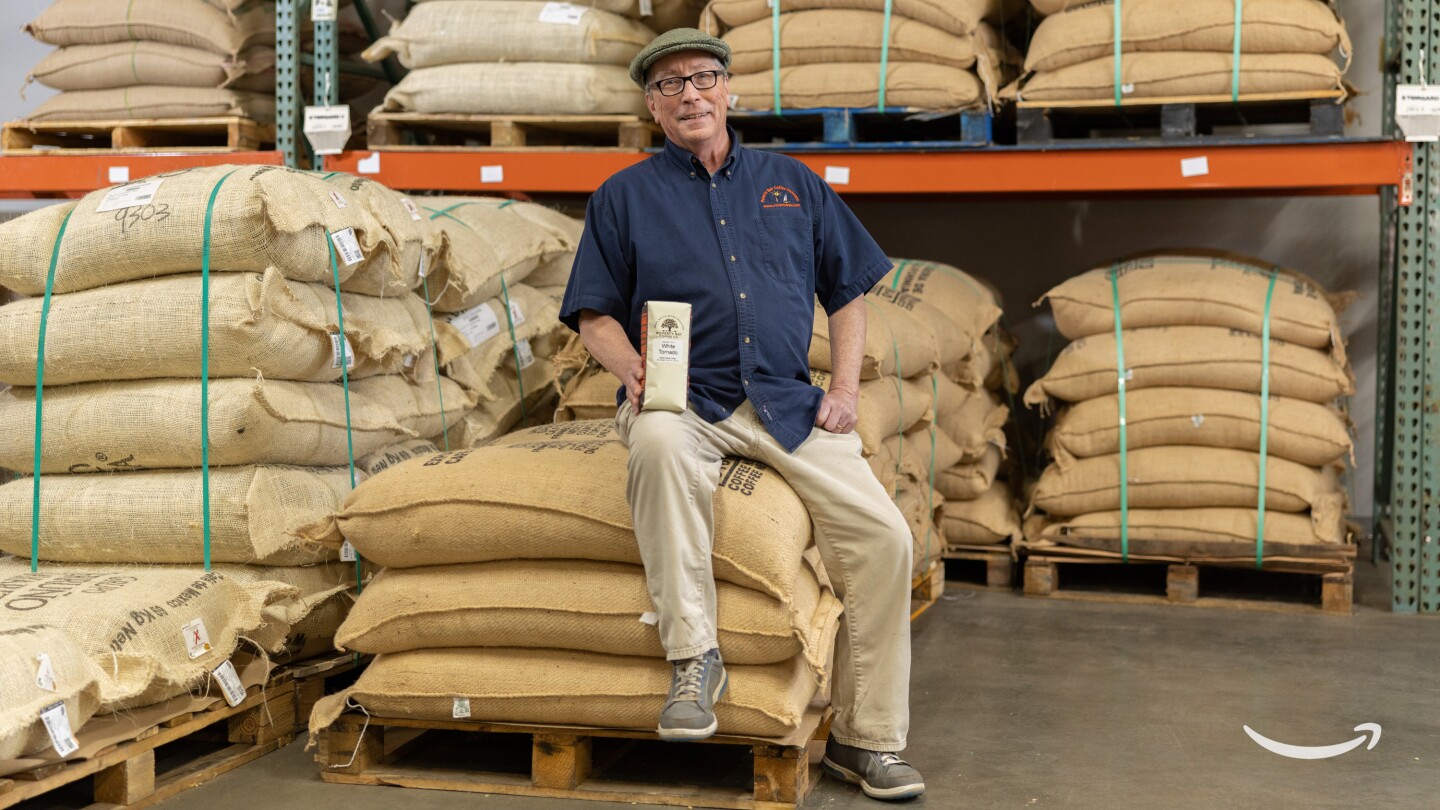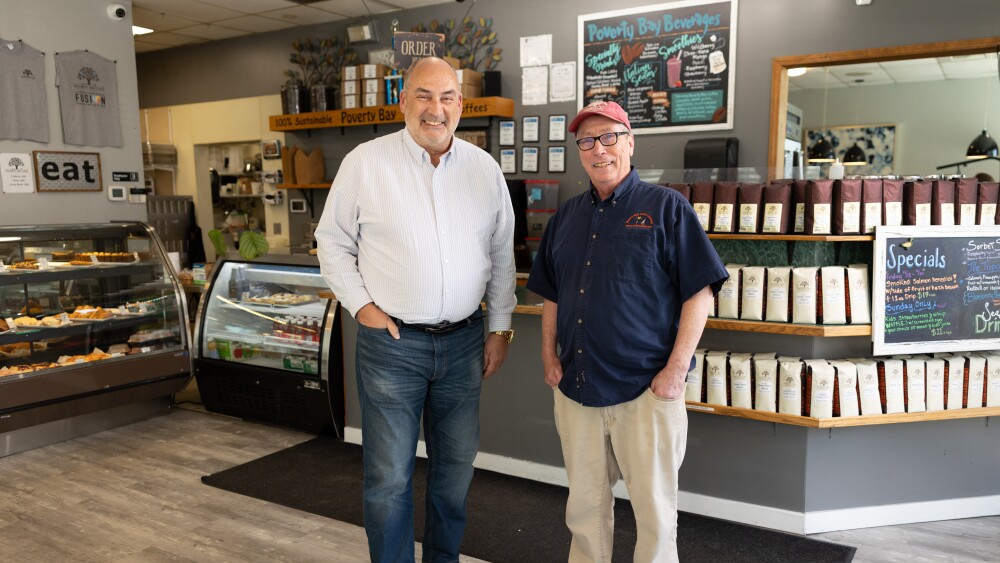When Dan Olmstead and his friends opened Poverty Bay Coffee, a coffee kiosk in the Seattle suburb of Federal Way, they didn’t have much of a vision.
“Initially, we were just looking for a way to earn a living,” admitted Olmstead.
But as the stall morphed into a roastery and cafe, that vision grew. Olmstead wanted Poverty Bay Coffee to be good stewards of both the environment and the economy—whether locally in Seattle or across the world. Olmstead started focusing on shade-grown coffee beans, which are naturally organic and don’t compete with rainforests to grow, and doing direct trade with farmers in Peru and Mexico—cutting out the middlemen so the farmers could get the full profit from the sale. He also prioritized paying his team a fair wage.
“We wanted to build a company we would be proud to be hired by,” he said.
For years, Poverty Bay mostly made money through wholesale or sales at their cafe. Then in 2019, Olmstead’s daughter, Brooke, convinced him to start selling in the Amazon store.
“At first I was skeptical, but she persisted,” he recalled. “I’m glad she did. What started out as a trickle of sales has become a nice, steady stream.”
One product in particular has become an Amazon favorite: their White Tornado White Coffee, which is the number-one ranking item in Amazon’s white coffee category. Olmstead had been blogging about white coffee—roasted for half as long as traditional beans and higher in caffeine—since 2018, just before it became trendy. Anticipating the product could become a bestseller, Brooke convinced her dad to enroll in Fulfillment by Amazon, allowing for Amazon to pick, pack and ship the coffee quickly through its global network of fulfillment centers.
Olmstead was again resistant, worried the Amazon fees would make the move cost-prohibitive. But as the product flew off the shelves, his skepticism melted away. In the first year, the company’s Amazon sales grew 400% and have since increased between 20-40% year-over-year.
“When we look at the cost per unit and what we earn selling in the Amazon store after the fees, we’re selling very close to what we sell wholesale,” he explained, adding that the growth to his company has been worth it.
“We’d be 15% less successful without Amazon.”
That sales growth made it possible for Olmstead to give his employees a raise and expand the amount of vacation time they get annually—all laddering back up to his vision of creating a business that served the community. To further that mission, he donated his cafe to Fusion, a local non-profit that provides housing to women and families in need. By giving them a way to grow their own revenue, Poverty Bay Coffee is helping make what Olmstead calls a “small but significant dent in the homeless issue.”
“If you do right by your employees and your customers, they’ll stick with you,” said Olmstead. “Amazon helps us do that—be a better partner, a better employer. For us, it’s not just about selling coffee. It’s about showing up for our community.”


